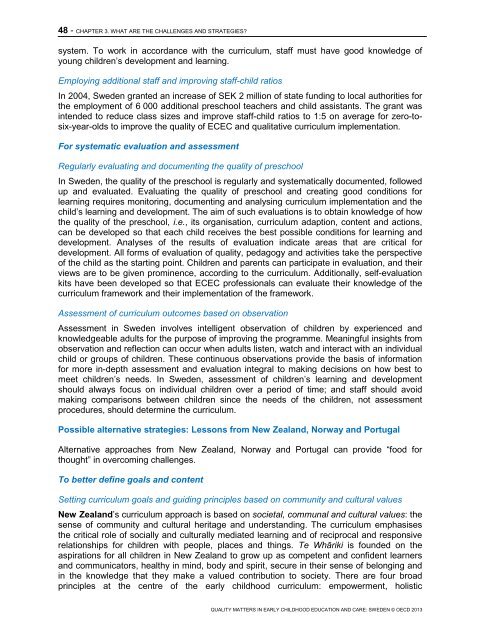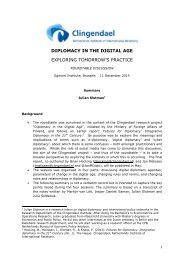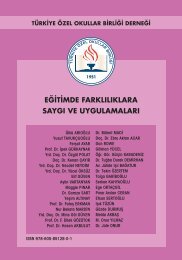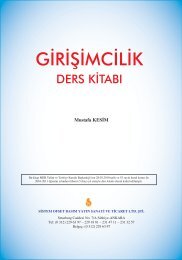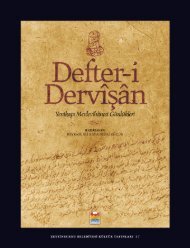SWEDEN%20policy%20profile%20-%20published%2005-02-2013
SWEDEN%20policy%20profile%20-%20published%2005-02-2013
SWEDEN%20policy%20profile%20-%20published%2005-02-2013
You also want an ePaper? Increase the reach of your titles
YUMPU automatically turns print PDFs into web optimized ePapers that Google loves.
48 - CHAPTER 3. WHAT ARE THE CHALLENGES AND STRATEGIES?<br />
system. To work in accordance with the curriculum, staff must have good knowledge of<br />
young children’s development and learning.<br />
Employing additional staff and improving staff-child ratios<br />
In 2004, Sweden granted an increase of SEK 2 million of state funding to local authorities for<br />
the employment of 6 000 additional preschool teachers and child assistants. The grant was<br />
intended to reduce class sizes and improve staff-child ratios to 1:5 on average for zero-tosix-year-olds<br />
to improve the quality of ECEC and qualitative curriculum implementation.<br />
For systematic evaluation and assessment<br />
Regularly evaluating and documenting the quality of preschool<br />
In Sweden, the quality of the preschool is regularly and systematically documented, followed<br />
up and evaluated. Evaluating the quality of preschool and creating good conditions for<br />
learning requires monitoring, documenting and analysing curriculum implementation and the<br />
child’s learning and development. The aim of such evaluations is to obtain knowledge of how<br />
the quality of the preschool, i.e., its organisation, curriculum adaption, content and actions,<br />
can be developed so that each child receives the best possible conditions for learning and<br />
development. Analyses of the results of evaluation indicate areas that are critical for<br />
development. All forms of evaluation of quality, pedagogy and activities take the perspective<br />
of the child as the starting point. Children and parents can participate in evaluation, and their<br />
views are to be given prominence, according to the curriculum. Additionally, self-evaluation<br />
kits have been developed so that ECEC professionals can evaluate their knowledge of the<br />
curriculum framework and their implementation of the framework.<br />
Assessment of curriculum outcomes based on observation<br />
Assessment in Sweden involves intelligent observation of children by experienced and<br />
knowledgeable adults for the purpose of improving the programme. Meaningful insights from<br />
observation and reflection can occur when adults listen, watch and interact with an individual<br />
child or groups of children. These continuous observations provide the basis of information<br />
for more in-depth assessment and evaluation integral to making decisions on how best to<br />
meet children’s needs. In Sweden, assessment of children’s learning and development<br />
should always focus on individual children over a period of time; and staff should avoid<br />
making comparisons between children since the needs of the children, not assessment<br />
procedures, should determine the curriculum.<br />
Possible alternative strategies: Lessons from New Zealand, Norway and Portugal<br />
Alternative approaches from New Zealand, Norway and Portugal can provide “food for<br />
thought” in overcoming challenges.<br />
To better define goals and content<br />
Setting curriculum goals and guiding principles based on community and cultural values<br />
New Zealand’s curriculum approach is based on societal, communal and cultural values: the<br />
sense of community and cultural heritage and understanding. The curriculum emphasises<br />
the critical role of socially and culturally mediated learning and of reciprocal and responsive<br />
relationships for children with people, places and things. Te Whāriki is founded on the<br />
aspirations for all children in New Zealand to grow up as competent and confident learners<br />
and communicators, healthy in mind, body and spirit, secure in their sense of belonging and<br />
in the knowledge that they make a valued contribution to society. There are four broad<br />
principles at the centre of the early childhood curriculum: empowerment, holistic<br />
QUALITY MATTERS IN EARLY CHILDHOOD EDUCATION AND CARE: SWEDEN © OECD <strong>2013</strong>


